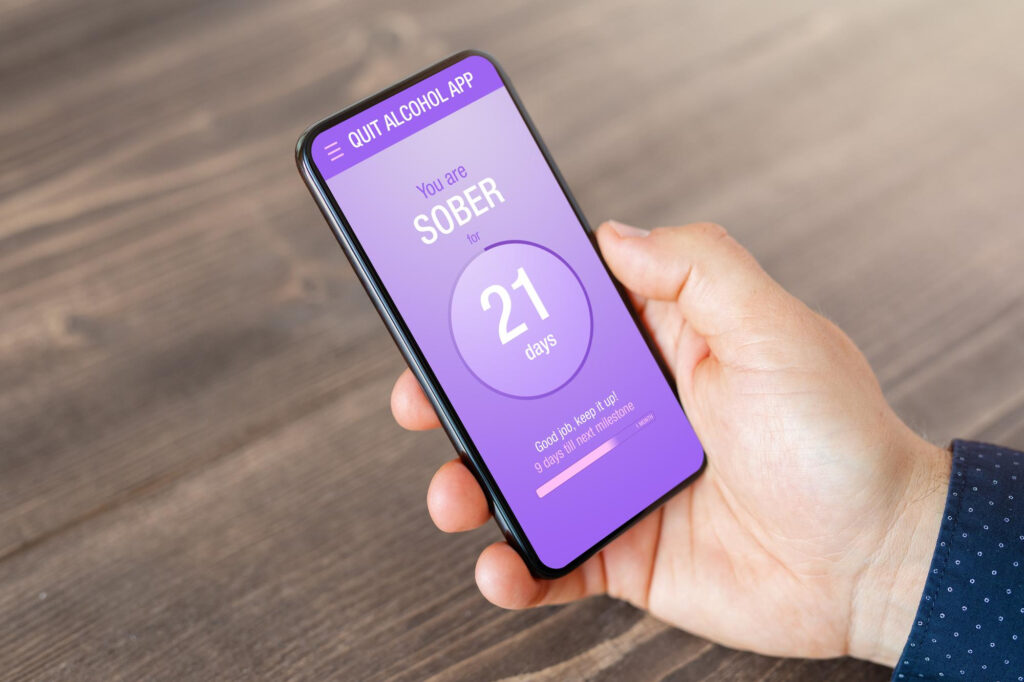Post-detox care is a vital component of the recovery journey, serving as a bridge between initial detoxification and long-term sobriety.
This crucial phase is not just about maintaining abstinence; it’s about building a sustainable lifestyle that supports lasting recovery.
Engaging in post-detox care equips individuals with the tools and strategies necessary to navigate the complexities of life without reliance on substances.
It’s important to remember that the journey toward sobriety is filled with opportunities for growth, learning, and self-discovery.
With the right support and commitment, long-term sobriety is not just a goal, but a promising and attainable reality.
This journey, though challenging, is rich with potential for a fulfilling and healthy life.
In California, post-detox care often includes access to cutting-edge therapies and wellness activities that leverage the state’s unique resources.
This integration of innovative care in a nurturing environment makes detox treatment in California a sought-after choice for those embarking on the critical journey from detoxification to lasting sobriety.

The Road to Recovery: Understanding Post-Detox Care
Post-detox care, an essential stage in addiction recovery, begins after the initial detoxification process.
It’s a comprehensive approach that addresses the physical, emotional, and psychological aspects of addiction, helping individuals transition from detoxification to a stable, substance-free life.
This phase is not just about staying sober; it’s about cultivating a life where sobriety is sustainable and fulfilling.
The importance of post-detox care cannot be overstated. Detoxification cleanses the body of substances, but it does not address the deeper issues that lead to addiction.
Post-detox care steps in to fill this critical gap. It involves therapy, counseling, and often participation in support groups, which provide a safe space for individuals to:
- Explore the root causes of their addiction
- Learn coping strategies
- Build a supportive network
One of the primary objectives of post-detox care is to prevent relapse.
Equipping individuals with the necessary tools and knowledge significantly reduces the risk of returning to substance use.
This care phase emphasizes relapse prevention strategies, including identifying triggers, developing healthy responses to stress, and fostering a positive support system.
Moreover, post-detox care plays a pivotal role in promoting long-term health and well-being.
It encourages lifestyle changes, such as adopting a healthy diet, engaging in regular exercise, and practicing mindfulness and stress management techniques.
These changes are crucial in building a balanced life, where physical and mental health are prioritized.
Post-detox care offers a roadmap to not only achieve sobriety but to maintain it in the long term, paving the way for a healthier, happier life free from the shackles of addiction.

Building A Solid Foundation: Key Strategies for Post-Detox Success
Transitioning from detoxification to long-term sobriety is a pivotal phase in addiction recovery.
This journey is often fraught with challenges, but with the right strategies and support, individuals can build a solid foundation for a sustained recovery.
Key components of this foundation include continuous therapy and counseling, building a supportive network, and employing effective relapse prevention techniques.
Continuous Therapy and Counseling
Post-detox success heavily relies on ongoing psychological support. Addiction is often a symptom of underlying issues such as trauma, stress, or mental health disorders.
Continuous therapy and counseling provide a safe space to address these root causes.
Cognitive-behavioral therapy (CBT), for instance, is particularly effective in helping individuals understand their thought patterns and behaviors, empowering them to make healthier choices.
Regular counseling sessions offer a platform for guidance, reflection, and accountability, essential for navigating the complexities of post-detox life.
Building a Support Network
The significance of a robust support network cannot be understated in the recovery process.
Support groups like Alcoholics Anonymous (AA) or Narcotics Anonymous (NA) offer a community of individuals who share similar experiences and challenges. These groups provide empathy, understanding, and collective wisdom that can be immensely comforting and enlightening.
Additionally, fostering relationships with family, friends, and mentors who understand and support one’s journey to sobriety is crucial.
These networks create an environment of encouragement and belonging, essential for maintaining long-term sobriety.
Relapse Prevention Techniques
An integral part of post-detox care is learning and implementing relapse prevention strategies.
Understanding and managing triggers is key to this. Triggers can be:
- Emotional (like stress or anxiety)
- Environmental (certain places or social settings)
- Physical (such as encountering drug paraphernalia).
Identifying these triggers and developing strategies to cope with them is vital.
For example, mindfulness and stress reduction techniques can help manage emotional triggers, while avoiding certain places or people can be effective for environmental triggers.
Developing a relapse prevention plan, which might include emergency contacts, coping strategies, and steps to take if a relapse occurs, is a proactive approach to maintaining sobriety.
Freddie’s Story:
An example of these strategies in action is the story of Freddie, a recovering alcoholic.
After detox, Freddie engaged in weekly therapy sessions, uncovering and addressing the emotional issues that fueled his addiction. He joined an AA group, where he found a sense of community and learned from others’ experiences.
Freddie identified stress as a major trigger for his drinking. Through therapy, he learned stress management techniques such as deep breathing and meditation.
He also made a plan for how to handle situations where alcohol was present, like choosing to leave early or bringing a sober friend for support.
Building a solid foundation for post-detox success involves a multifaceted approach.
Continuous therapy and counseling, nurturing a support network, and mastering relapse prevention techniques are crucial elements.
By integrating these strategies into their recovery process, individuals set themselves up for a healthier, more resilient path toward long-term sobriety.

Lifestyle Changes for Lasting Sobriety
Achieving lasting sobriety extends beyond abstaining from substances; it encompasses a complete lifestyle overhaul.
Integrating healthy living habits, mindfulness practices, and engaging in fulfilling activities are crucial for maintaining long-term sobriety.
These changes not only support physical health but also enhance mental well-being, making the recovery journey more sustainable and rewarding.
Healthy Living
The foundation of lasting sobriety is often built on the pillars of physical health:
- Exercise
- Nutrition
- Sufficient sleep
Regular physical activity is vital in this journey, as it not only improves physical health but also boosts mood and reduces stress, both common triggers for substance use.
Whether it’s a daily walk, joining a fitness class, or engaging in sports, finding an enjoyable form of exercise is key.
Nutrition also plays a significant role. A balanced diet rich in essential nutrients helps repair the body and improves brain function, which is often compromised due to substance abuse.
Equally important is quality sleep, which allows the body and mind to heal and rejuvenate. Establishing a regular sleep pattern and creating a restful environment can significantly improve emotional regulation and cognitive function.
Mindfulness and Stress Management
Mindfulness practices like meditation, yoga, or even simple breathing exercises are powerful tools for individuals in recovery.
These practices help in developing a heightened awareness of the present moment, enabling better control over reactions to stress and cravings.
Meditation, for instance, can help in understanding and managing thoughts and emotions, thereby reducing the likelihood of relapse.
Yoga not only offers physical benefits but also teaches discipline and mindfulness.
Additionally, journaling is an excellent way to process emotions and reflect on personal growth, offering insights into behavioral patterns and coping mechanisms.
Pursuing Hobbies and Interests
Engaging in hobbies and interests that bring joy and fulfillment is essential for mental well-being. These activities offer a sense of accomplishment and purpose, which are critical in recovery.
Whether rediscovering old passions or exploring new interests, hobbies provide a constructive outlet for energy and emotions.
They can range from creative pursuits like painting or writing to learning a new skill or volunteering in the community.
These activities not only occupy the mind and reduce idle time but also help in building self-esteem and a sense of identity outside of addiction.
Margaret’s Story:
For example, Margaret, a recovering addict, found solace in gardening.
It became a therapeutic activity for her, offering a sense of peace and accomplishment as she nurtured her plants.
Gardening helped her stay present, focusing on the task at hand rather than dwelling on past struggles. It also provided her with a supportive community of fellow gardening enthusiasts, contributing to her support network.
Adopting a lifestyle conducive to sobriety is a multifaceted approach.
It involves taking care of the body through exercise, nutrition, and sleep, nurturing the mind through mindfulness and stress management techniques, and enriching the soul by pursuing hobbies and interests.
These lifestyle changes not only aid in preventing relapse but also pave the way for a fulfilling, sober life.

Navigating Challenges and Setbacks
The journey to sobriety is rarely a straight path; it often includes challenges and setbacks.
Learning to navigate these hurdles is crucial for recovery and long-term success.
This involves developing strategies to cope with cravings, understanding how to deal with relapse, and recognizing the importance of seeking professional help when needed.
Coping with Cravings
Cravings are a common challenge in the recovery process. To manage them effectively, it’s essential to have both practical tips and psychological tools at your disposal.
One effective strategy is to distract oneself during a craving, which typically lasts only a few minutes. Engaging in a hobby, exercising, or calling a friend can redirect focus.
Mindfulness techniques, such as deep breathing or meditation, can help in staying grounded and managing the intensity of the craving.
It’s also beneficial to understand the triggers that lead to cravings, whether they are emotional, environmental, or social, and develop strategies to avoid or confront these triggers proactively.
Dealing with Relapse
Relapse, although not inevitable, can be a part of the recovery journey. It’s important to view relapse not as a failure, but as an opportunity to learn and strengthen one’s recovery plan.
If a relapse occurs, it’s crucial to act quickly, assess what led to it, and adjust the recovery strategy accordingly.
This might involve:
- Revisiting therapy
- Adjusting medication
- Increasing participation in support groups
The key is to maintain a non-judgmental and forgiving attitude towards oneself and to remember that recovery is a process with ups and downs.
Seeking Help When Needed
Recognizing when to seek professional assistance is a critical skill in managing recovery.
Warning signs such as persistent cravings, feeling overwhelmed by stress, or changes in mood and behavior can indicate the need for professional help.
Reaching out to a therapist, counselor, or healthcare provider can provide the necessary support to navigate these challenges.
It’s important to remember that seeking help is a sign of strength and a proactive step in maintaining sobriety.
Navigating the challenges and setbacks in recovery is an essential part of the journey.
By developing strategies to cope with cravings, understanding how to deal with relapse, and recognizing when to seek professional help, individuals can enhance their resilience and ability to maintain long-term sobriety.
Recovery is not defined by the absence of challenges, but by how one responds and grows from them.
Should you experience a relapse, please remember it’s not the end of your journey. Your resilience and willingness to continue fighting are what truly matter.
We understand the complexities of recovery, and we’re here to support you every step of the way. Don’t hesitate to reach out to us; we’re ready to assist you in getting back on track.

Resources
Navigating post-detox care in the United States involves leveraging a variety of resources and support systems tailored to individual needs.
Here are some key resources and how to choose the right ones based on specific requirements:
SAMHSA (Substance Abuse and Mental Health Services Administration)
SAMHSA offers extensive resources for recovery and support. Their website includes information on various aspects of substance abuse and mental health, including treatment options, prevention strategies, and recovery support.
SAMHSA also provides a comprehensive treatment locator tool at FindTreatment.gov, which helps individuals find local treatment facilities based on specific needs.
SAMHSA’s National Helpline (1-800-662-HELP)
Provides confidential, free, 24/7, 365-day-a-year treatment referral and information service in English and Spanish for individuals and families facing mental and/or substance use disorders. This helpline is a great starting point for seeking immediate assistance and guidance.
988 Suicide & Crisis Lifeline
For those struggling with severe mental health crises or suicidal thoughts, the 988 Suicide & Crisis Lifeline offers immediate help. This can be accessed by calling or texting 988.
Choosing The Right Resources
This usually depends on individual needs and circumstances. Here are some factors to consider:
Type of Substance Abuse
Different substances may require different treatment approaches. It’s important to look for resources and programs that specialize in treating the specific substance dependency you’re dealing with.
Location
Accessibility is key. Local resources are often preferable for ongoing, consistent support.
Level of Care Needed
Depending on the severity of the addiction and any co-occurring mental health conditions, different levels of care may be required, ranging from outpatient therapy to inpatient residential programs.
Support System
Consider programs that offer or connect you to support groups, as peer support can be crucial for long-term recovery.
Cultural and Linguistic Needs
If language or cultural understanding is a barrier, seek out resources that can accommodate these needs to ensure effective communication and comfort.
By evaluating these factors and utilizing the available resources, individuals seeking post-detox care can find the support they need to navigate their recovery journey effectively.
Remember, reaching out for help is a sign of strength and the first step towards a healthier future.

Key Takeaways:
- Post-detox care is a vital component of the recovery journey, serving as a bridge between initial detoxification and long-term sobriety.
- It’s a comprehensive approach that addresses the physical, emotional, and psychological aspects of addiction, helping individuals transition from detoxification to a stable, substance-free life.
- This care phase emphasizes relapse prevention strategies, including identifying triggers, developing healthy responses to stress, and fostering a positive support system.
- Recovery is a personal journey and one size does not fit all.
- Achieving lasting sobriety extends beyond abstaining from substances; it encompasses a complete lifestyle overhaul.
- It integrates healthy living habits, mindfulness practices, and engaging in fulfilling activities are crucial for maintaining long-term sobriety.
- The journey to sobriety is rarely a straight path; it often includes challenges and setbacks.
- Learning to navigate these hurdles involves developing strategies to cope with cravings, understanding how to deal with relapse, and recognizing the importance of seeking professional help when needed.
- By actively engaging in your recovery process you can best strengthen your road to recovery.

Sources
Livingston et al. 2022. “Interventions to Improve Post-Detoxification Treatment Engagement and Alcohol Recovery: Systematic Review of Intervention Types and Effectiveness”. Alcohol Alcohol. 2022 Jan 8;57(1):136-150. doi: 10.1093/alcalc/agab021.





